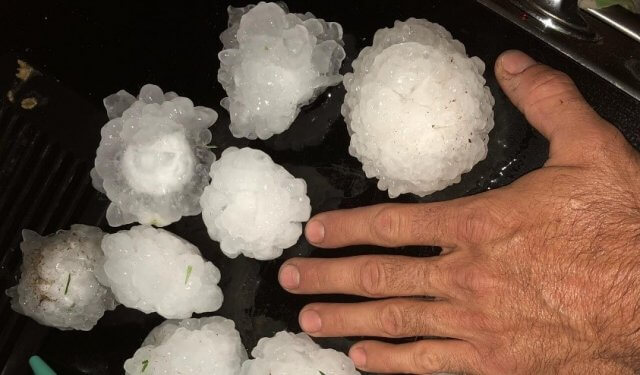If you're a Colorado Springs resident, you know for certain that you’ll probably encounter hail storms, on average, every other year or so and the damage they leave behind can be devastating to your roof which faces heavy rains, hail, wind, falling debris, and more during storm season.
Certainly, you rely on your roof to keep your family safe from the dangerous, stormy weather. So, whenever a storm hits your property—and you think your roof may have suffered damage— you may feel tempted to call your insurance company immediately. However, that's the wrong move and it actually puts you at a disadvantage. Here’s why:
Why is Calling Your Insurance Company Immediately After a Storm a Wrong Move?
You should know that once you place a claim with your insurance company, they send the company adjusters to come over and assess the damage which comes with a few downsides.
1. Unnecessary Claims Still Count Against You
Just because a severe storm has hit your community and neighboring properties have sustained substantial damages doesn't mean your roof is damaged, too. It might turn out that what you thought were severe damages are not significant enough to necessitate a claim.
If the adjuster comes to your property and it turns out the damages are insubstantial, the insurance company will still count this as a claim on your record. Not only does this make you a higher risk client in the eyes of the underwriters and insurance companies, but this “claim without pay” is also viewable to other insurance companies if you’re trying to shop around for a new policy. Since this claim makes you a higher risk, it may also ultimately result in an increase in your rates.
What Should You Do After a Storm?
The urgency to guarantee the safety of your property following a storm is justified. Therefore, if you suspect your roof has sustained damage, call a licensed roofing contractor immediately to come and inspect the roof.
Note: It's common to have roofers knocking on your door following a storm. Avoid the temptation of letting them on your roof, however convincing their pitches are. The Colorado Department of Regulatory Agency cautions homeowners from hiring contractors who are canvassing neighborhoods.
You're better off calling an expert contractor whom you trust or get recommendations from friends and family. Once that contractor verifies that your damage may be insurable, reach out to your insurer immediately and file your claim.
Working with a trusted contractor is necessary because they will be working with the adjuster to assess the extent of the repairs required. You want to engage someone whose word you can rely on and one who will ensure you get a fair settlement that will cover the repair costs.
Also, as insurance companies have different claim-filing deadlines, note the deadline as per your policy to avoid being locked out due to late submission.
Work With Trusted Roofing Experts
Homestead Roofing is at your service. Should your property get hit by a storm, Homestead Roofing will help you navigate the aftermath by assessing your roof's damage and helping you get your roof back in shape.





